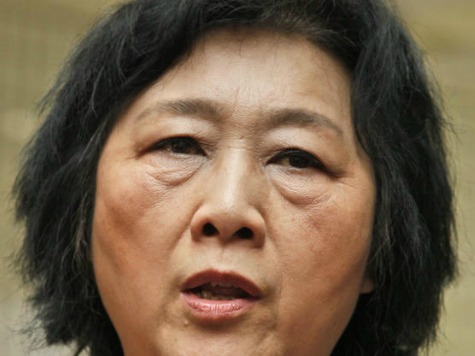An influential Chinese journalist has been locked up on charges of leaking state secrets. Gao Yu, who was also imprisoned for over six years following the 1989 Tiananmen square protests, has been thrown in jail again stemming from reports from state-media outlet Xinhua. She allegedly obtained a top secret Communist party document and leaked it to another media outlet.
The charges did not specify what the document entailed or to which media outlet it was leaked to. The Associated Press reported that the leaked document was a strategy memorandum that outlined China’s strategy toward two issues. The first focus outlined a policy on how to deal with combating “Western democratic ideals.” The second strategy in the leaked report dealt with suggestions towards ensuring China’s Communist party could keep their stranglehold on power, and punish dissent more effectively. The strategy paper became known in the international media as “Document 9.” It was seen as an insight into what to expect from newly elected Communist Party General Secretary Xi Jinping. His position as chairman in the governing power structure is equivalent to the President of the United States or the British Prime Minister.
“Document 9” allegedly illegally obtained by Gao was published last August by Mirror Monthly, a magazine based out of Hong Kong.
Gao’s arrest comes as the June 4 anniversary of the 1989 Tiananmen square protests is less than a month away. It is widely believed hundreds of dissenters died during the original protests. Several others have been detained over the past week. The list includes a respected lawyer and three others who had taken part in a recent seminar discussing the 1989 Tiananmen protests.
Chinese State television network CCTV recently broadcast an apology from Gao, where she admitted to her apparent wrongdoing while being escorted by two police officers. “I think what I did touched on the law and endangered the interests of the nation. This was very wrong. I have sincerely learned my lesson and also wish to admit guilt,” she said. Many believe Gao was forced against her will to make the confession. Chinese legal scholars worry that this new method of forcing confessions before a trial will undermine what is left of the legal process in China’s courts.
“The case highlights the dangerously vague Chinese state secrets law, in which the designation of state secrets is broad and ill-defined, and can’t be legally challenged in courts,” said Human Rights Watch Asia Researcher Maya Wang.
The US State Department was highly concerned by news of Gao’s arrest and China’s continuing human rights violations. “We call on Chinese authorities to release these individuals immediately, remove restrictions on their freedom of movement, and guarantee them the protections and freedoms to which they are entitled under China’s international human rights commitments,” said State Department spokesperson Jen Psaki.

COMMENTS
Please let us know if you're having issues with commenting.